By Josephine Chinele, The Continent
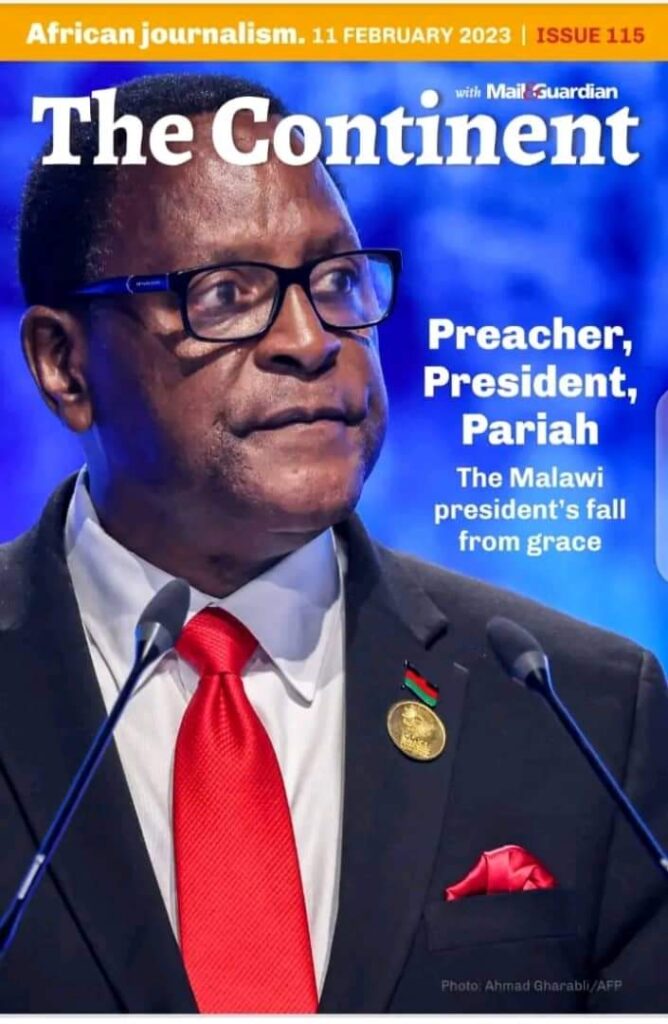
Lazarus Chakwera did not win the 2019 presidential election at the first time of asking. Instead, the incumbent, Peter Mutharika, was declared the winner – despite widespread allegations of electoral fraud and corruption. Malawians were having none of it.
Six months of relentless street protests were followed by a landmark court ruling, in which Constitutional Court judges bravely rejected bribes and intimidation to nullify the results of that poll – a win for Malawi’s democracy and, ultimately, Chakwera. When the vote was rerun in June 2020, he won in a landslide.
His inauguration was greeted with scenes of euphoria. As a prominent leader in the country’s influential evangelical movement, he sold himself as a clean break from the messy politics of Malawi’s past, and said he would clear away the “rubble of corruption”. Instead, he has found himself in the centre of even more mess.
His approval ratings have plummeted, and Western donors – crucial to the functioning of the fragile economy – are publicly grumbling about his failure to tackle corruption. The problems are not all of his own making. The economy – still heavily dependent on subsistence agriculture, and thus the fluctuating price of fertilizer – has been battered first by the pandemic and then the Russian invasion of Ukraine.
This has left the president struggling to deliver on campaign promises, such as the provision of affordable fertilizer to farmers, who are a majority of voters in this largely agrarian society. But Chakwera has made plenty of his own mistakes. His first cabinet included several of his siblings and people with family connections, earning him the moniker “Family Man”.
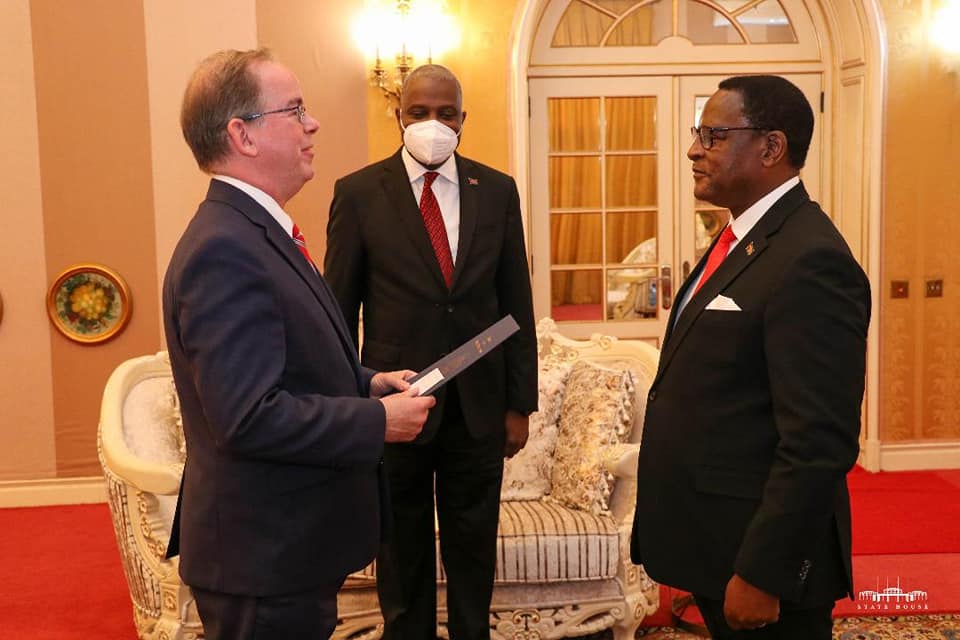
Appointing son-in-law Sean Kampondeni as his communications director and giving daughter Violet Chakwera a diplomatic post in the United Kingdom did little to challenge the perception of nepotism. Rookie mistakes But it is Chakwera’s handling of one of Malawi’s biggest-ever corruption scandals that has been the major factor in his declining popularity.
The scandal centres on Zuneth Sattar, a British businessman. Although he has yet to be formally charged, authorities allege that Sattar bribed senior government officials – to secure lucrative government tenders. Sattar denies these allegations. Chilima was arrested and charged with multiple corruption-related offences in November.
Although Chakwera has said publicly that he supports the ongoing investigation, his treatment of Martha Chizuma – the popular director of the Anti-Corruption Bureau, a government agency – suggests something different. She has been intimidated by police; her conversations have been illegally recorded and used against her; and the president has dismissed her as a “rookie” and her reports as “substandard”.
In December, she was arrested by armed policemen and charged with libel, in connection to comments made in the illegal recordings. It emerged in court that this indictment was driven by the secretary to the president and cabinet. When it was challenged by the Malawi Law Society, the attorney-general – another Chakwera appointee – hired private lawyers to insist on its validity.
As The Continent reported last year: “Chizuma remains in the job only because she is more popular and trusted by the public – and Malawi’s donors – than any other public official”. But those donor nations are getting restless nonetheless.
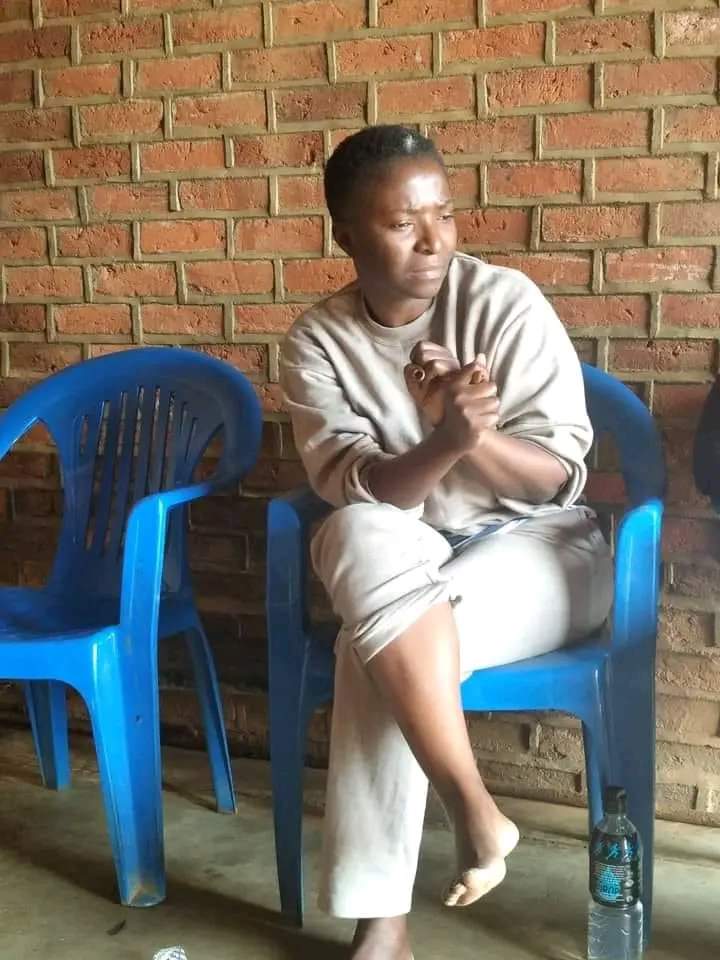
In a scathing statement released this week, the embassy of the United States in Malawi described the legal action against Chizuma as “two months of harassment”, and added: “As a democratic partner, the embassy of the United States looks to the government of Malawi to actively – including vice-president Saulos Chilima pursue the fight against corruption and not to wage a campaign of intimidation against anti-corruption champions.
“We have actively engaged senior government officials to seek renewed commitment to the fight against corruption, but those efforts have not yielded results.”
These sentiments were subsequently echoed by the British High Commissioner to Malawi. Lilongwe responded with a statement vowing to protect “sovereignty and independence” of its institutions while simultaneously saying it will launch constructive dialogue with the donors.
The consequences for Malawi became clearer later in the week. The US, it was reported, is considering withdrawing a planned $350-million investment in Malawi’s energy and road infrastructure, and may follow up with more targeted measures including travel bans.
Disappointing start Lazarus Chakwera ascended to the presidency with no experience in running a government. What he did bring with him was his reputation as a prominent evangelical pastor who espoused the virtues of servant leadership.
His party, the Malawi Congress Party, had spent 29 years in opposition, but as the country’s oldest political party were expected to restore some respect to the executive office. The disappointments in both party and president have been great. So palpable is the discord with the public that a recent Afrobarometer poll predicted that if elections were to be held now, the Democratic Progressive Party – the party of disgraced former president Mutharika – would bounce back to power.
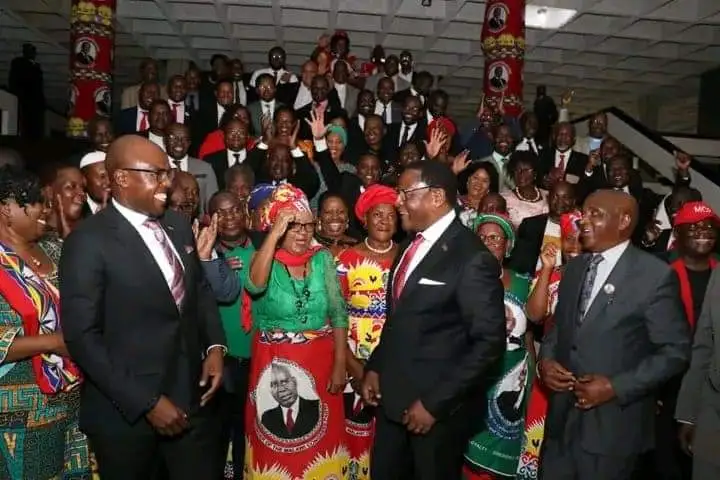
“People elected him [Chakwera] based on the promises he made but there is nothing to show for it,” said Boniface Dulani, a political scientist and Afrobarometer researcher.
“The results of the Afrobarometer study are a product of frustration, corruption has increased, and the government isn’t doing a good job in handling the economy.”
Chimwemwe Tsitsi, a political scientist at the Malawi University of Business and Applied Sciences, said that “the mistreatment of Anti-Corruption Bureau chief Martha Chizuma has compromised the Chakwera administration’s integrity”.
Government spokesperson Moses Kunkuyu rejects this assertion, arguing that the president has in fact been protecting Chizuma.
He claims the government is fully committed to fighting corruption. Fortunately for Chakwera, he still has two and a half years before he has to answer to the electorate again – which gives him several opportunities to answer his critics.
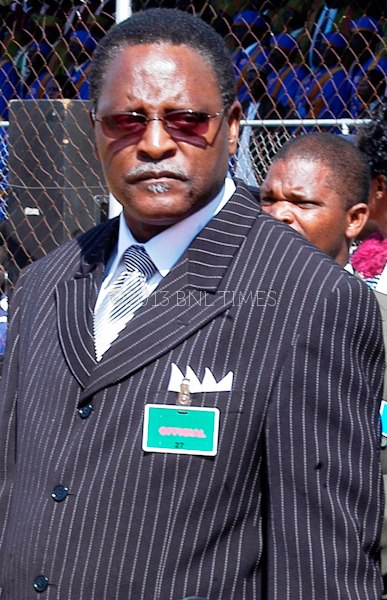
Among the most urgent is his handling of the ongoing cholera outbreak, which has killed 1,210 in the last year.
Even more politically significant, however, is whether he will be able to deliver a good harvest – something that depends on getting affordable fertilizer to the country’s farmers, which is partially in his control; and good rains, which is not.
Chakwera’s parents, after losing three babies in infancy, named him Lazarus, after the biblical figure who rose from the dead. Can he resurrect his political career?.- (Story Credit: The Continent, Published on February 11, 2023)



[…] post Chakwera’s poor leadership invites Sarcasm…falls from grace, says SA media appeared first on Malawi […]